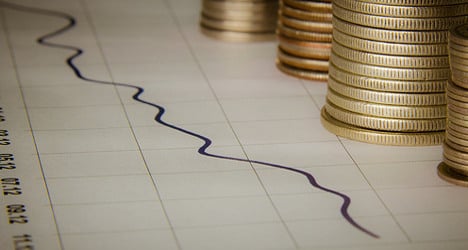ECONOMY
French economy expands but business investment drops
The French economy grew during the second quarter of 2017 even as business investment dropped.
Published: 28 July 2017 09:20 CEST

Photo: Kenteegardin/Flickr
The French economy expanded by 0.5 percent in the second quarter of the year despite a slowdown in growth in business investment, the Insee national statistics agency said Friday.
That quarter-on-quarter pace matches the growth the French economy managed in the previous two quarters, confirming a modest recovery in the eurozone's second-largest economy continued despite political uncertainty during the presidential and parliamentary elections.
An increase in the growth of consumer consumption, to 0.3 percent from 0.1 percent in the first three months of the year, helped compensate for a slowdown in the increase in business investment to 0.5 percent from 1.4 percent following the expiration of tax incentives.
In May this year, The Local reported that consumer confidence had hit its highest level since August 2007, with more people holding a positive outlook about their future earnings due to the election of Emmanuel Macron as French president.
Exports also helped boost growth, jumping by 3.1 percent after having contracted by 0.7 percent in the previous quarter.
Url copied to clipboard!


 Please whitelist us to continue reading.
Please whitelist us to continue reading.